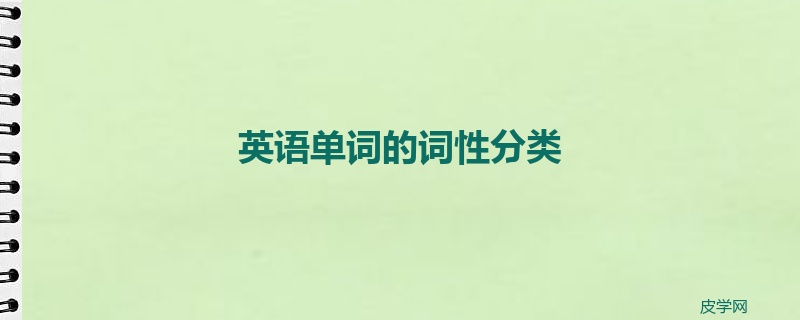) 表示动作或状态 eat, go, travel 及物动词,Transitive Verb (vt

英语单词是有属性的,我们通常管它叫英语单词的词性,这些包括名词(Noun),动词(Verb),代词(Pronoun),形容词(Adjective),介词 (Prepositions)等。
二、 词性的分类和缩写
1.名词,Noun (n.) 表示人或事物的名称 desk, pencil, tomato, apple
可数名词,Countable Noun (c./cn.), tree, bottle, bag
单数,Singular(sing.), a car, an apple, the man
复数,Plural(pl.), books, shoes, pens
不可数名词,Uncountable Noun(u./un.), milk, water, ocean
2.代词,Pronoun (pron.) 代替名词或代替相当于名词的词、短语或句子you, this, them ,myself
3.形容词,Adjective (a./adj.) 用来修饰名词,表示人或事物的特征 lucky, excellent, wonderful, humorous
4.数词,Numeral (num.)表示数目或顺序 one, two, first
5.动词,Verb (v.) 表示动作或状态 eat, go, travel
及物动词,Transitive Verb (vt.) 后面可直接接宾语
不及物动词,Intransitive Verb (vi.) 后面不可直接接宾语
6.副词,Adverbs(ad./adv.) 修饰动、形、副等词,表示动作特征 there, widely, suddenly
7.冠词,Articles (art.) 用在名词前,帮助说明名词所指的范围 a, an, the
8.介词,Prepositions (prep.) 用在名词或代词前,说明它与别的词的关系 in, on, at, of
9.连词,Conjunctions (conj.) 是用来连接词与词、短语与短语、句与句的一种虚词,and,or
10.感叹词, Interjections (int.) 代替名词、数词、形容词等 oh, ah, wow
